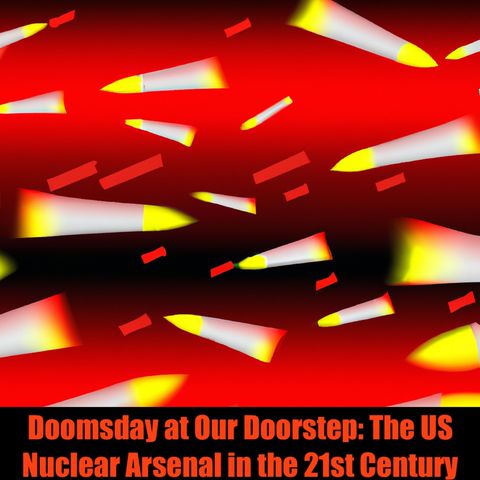From Deterrence to Disarmament: Can the US Lead the Way in a Nuclear-Free World? The United States sits atop a vast and deadly arsenal of nuclear weapons, inherited from the Cold War era and modernized for the 21st century. While this arsenal serves as a potent deterrent against potential aggressors, its mere existence casts a long shadow over global security. The question now arises: can the US, the world's most powerful nation, also lead the way in a radical shift towards a nuclear-free world? The current state of nuclear arms control offers a mixed picture. Treaties like New START have limited the proliferation of nuclear weapons and established communication channels between nuclear powers. However, these treaties remain fragile and often face challenges due to political tensions and shifting global dynamics. The ethical and humanitarian arguments for disarmament are undeniable. Nuclear weapons pose an existential threat to humanity, capable of causing widespread destruction and long-lasting radioactive contamination. Their continued existence fuels a dangerous arms race and increases the risk of accidental detonation or unauthorized use. Technologically and strategically, achieving a nuclear-free world requires significant advancements in verification and monitoring mechanisms. Robust international inspections and oversight are necessary to ensure compliance with disarmament agreements and prevent the clandestine development of nuclear weapons. The economic and political implications of a nuclear-free world are far-reaching. The resources currently allocated to maintaining and modernizing nuclear arsenals could be redirected towards critical global challenges like poverty, climate change, and healthcare. A world without the threat of nuclear war could foster greater international cooperation and collaboration. Non-governmental organizations and public opinion play a crucial role in pushing for nuclear disarmament. Grassroots movements and public awareness campaigns can exert significant pressure on governments to prioritize disarmament efforts. Additionally, international organizations like the United Nations and the International Atomic Energy Agency play critical roles in facilitating disarmament negotiations and ensuring compliance with international treaties. The US, as the world's sole superpower, faces unique challenges but also possesses immense potential to lead the charge towards a nuclear-free world. By demonstrating a commitment to disarmament, the US can encourage other nuclear powers to follow suit. This leadership can involve:
- Reducing its own nuclear arsenal: Taking concrete steps to reduce the number of warheads and decommission outdated weapons systems.
- Strengthening arms control agreements: Proactively engaging in negotiations and diplomacy to uphold existing treaties and forge new ones.
- Investing in verification and monitoring technologies: Leading the development of robust international inspection systems to ensure compliance with disarmament agreements.
- Championing international cooperation: Collaborating with other countries and international organizations to promote nuclear non-proliferation and disarmament initiatives.
- Engaging in public diplomacy: Educating the public about the dangers of nuclear weapons and garnering support for disarmament efforts.
The path towards a nuclear-free world is long and arduous, but it is not insurmountable. By taking decisive action and demonstrating unwavering commitment, the US can leverage its influence to build a safer and more secure world for future generations. Thanks for listening to Quiet Please. Remember to like and share wherever you get your podcasts.


Comments